Happy Black History Month from the Literatures and Languages Library!
From Phillis Wheatley to Zora Neale Hurston to Colson Whitehead, Black writers have enriched our country’s literary heritage for centuries. While the Literatures and Languages Library amplifies Black voices all year, Black History Month provides a special opportunity to highlight a few of the many wonderful works in our collection created by Black authors.
The origin of Black History Month dates to 1926 when historian Carter G. Woodson conceived of Negro History Week. Specifically responding to how the American public school system represented the significance of Black history, Woodson envisioned Negro History Week as a national celebration of Black culture (Franklin). Woodson originally chose the second week in February as an apt time to champion Black history because it coincided with the birthdays of both Abraham Lincoln and Frederick Douglass. Following the civil rights movement, the week-long event transformed into the full month celebration that we now recognize.
Our collection is always growing, and this curated list provides just a glimpse of some of the exciting new fiction and poetry we offer. These works are eclectic and explore a diverse spectrum of the Black experience, ranging from the Afro-punk scene of the 1970s to queer life amidst the AIDS epidemic.
The titles featured here are currently on display in our exhibit case but will be available for check-out on March 1st. To see the full exhibit, or to get more reading recommendations for Black History Month, come visit us in the Main Library, Room 200!
Fiction:
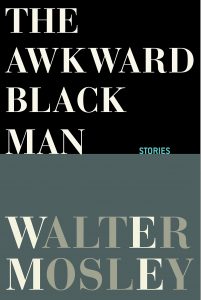 The Awkward Black Man (Stories) by Walter Mosley
The Awkward Black Man (Stories) by Walter Mosley
Walter Mosley is often considered one of America’s greatest crime-fiction writers, winning an Edgar Grand Master Award as well as a Medal for Distinguished Contributions to American Letters from the National Book Foundation. But this collection of 17 short stories displays the broad range of Mosley’s talent. The Awkward Black Man providing fascinating glimpses into a motley collection of protagonists–heroes who are awkward, nerdy, self-defeating, self-involved, and, on the whole, odd. The collection seeks to challenge stereotypes about Black male characters and urges the reader to consider each one on his own merits.
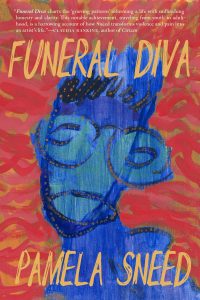 Funeral Diva by Pamela Sneed
Funeral Diva by Pamela Sneed
Seamlessly weaving together personal essays and poetry, poet, performer, visual artist, and educator Pamela Sneed brings all her talents to bear on this memoir, which depicts the AIDS crisis’ impact on Black queer life in New York City. The winner of the Lambda Award for Lesbian Poetry, Funeral Diva’s poems are in conversation with lost lovers and Black literary forebears from James Baldwin to Audre Lorde, and extend from meditations on the past into the trauma and hope of the present day.
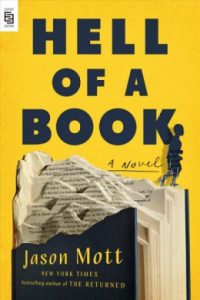 Hell of a Book: Or the Altogether Factual, Wholly Bona Fide Story of a Big Dreams, Hard Luck, American-Made Mad Kid by Jason Mott
Hell of a Book: Or the Altogether Factual, Wholly Bona Fide Story of a Big Dreams, Hard Luck, American-Made Mad Kid by Jason Mott
It’s a hell of a title for a hell of a book. This National Book Award-winning novel bends time and reality to tell the dizzying story of a best-selling Black author’s cross-country publicity tour. His journey intersects and intermingles with the stories of a young black boy named Soot and a possibly mythic child named, simply, The Kid. As their lives converge amidst a series of tragic, magical, and astonishing twists that will have the reader questioning what is real and how can we move forward?
Other Fiction Recommendations:
- The Final Revival of Opal and Nev by Dawnie Walton
- The Prophets by Robert Jones, Jr.
- The Sweetness of Water by Nathan Harris
- No Heaven for Good Boys by Keisha Bush
- The Minister Primarily by John Oliver Killens
- The Confession of Copeland Cane by Keenan Norris
- How Beautiful We Were by Imbolo Mbue
Poetry:
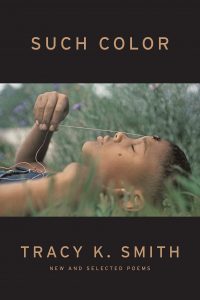 Such Color by Tracy K. Smith
Such Color by Tracy K. Smith
This collection brings together some of the most powerful and esteemed poems from the former Poet Laureate of the United States, Tracy K. Smith. Such Color includes works originally published in volumes including the Pulitzer prize-winning Life On Mars (2011), as well as The Body’s Question (2003), Duende (2007), and Wade in the Water (2018). The collection also includes new poems, which reflect on America’s historical and contemporary racism, while urging the reader towards the radical choice of love and compassion in the face of all that stands in its way.
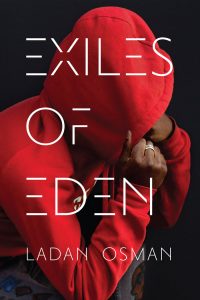 Exiles of Eden – Ladan Osman
Exiles of Eden – Ladan Osman
Drawing from Somali storytelling traditions, Exiles of Eden provides a fascinating new perspective on the story of Adam, Eve, and their exile from the Garden of Eden. Seamlessly blending the past and present in hypnotizing, experimental verse, Osman explores the experiences of displaced people across multiple generations. Her characters by turns grapple with trauma, isolation, and the disheartening realization that once you are exiled from Eden, you can never go back.
Other Poetry Recommendations:
- Body Not My Own by Tanque R. Jones
- Monument by Natasha Trethewey
- Homie by Danez Smith
- The Animal Indoors by Carly Inghram
- Reparations Now! by Ashley M. Jones
Works Cited
Franklin, Jonathan. “Here’s the story behind Black History Month—and why it’s celebrated in February.” NPR, https://www.npr.org/2022/02/01/1075623826/why-is-february-black-history-month. Accessed 4 February 2022.





